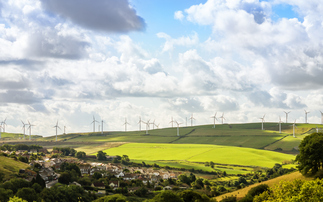The penultimate day of the UN climate conference in Cancun provided something of an information drought for observers. As has been the case the whole week, most negotiations again continued behind closed doors. Unless one could find a friendly senior negotiator (no easy task), or that even rarer creature, an observer with accurate insider information, speculation and rumour tended to be the basis of discussion.
While substance was hard to find, the process itself over the final 24 hours at least remains relatively clear. In short, ministers and their officials need to agree a set of decisions with which to conclude the conference. These will first be hammered out in small group meetings, before being discussed and agreed in plenary meetings of the two negotiating tracks. Once the two tracks have formally concluded their work, they will in turn pass their outcomes to the Convention and Protocol plenaries for final, formal adoption.
Getting to this point will involve a lengthy session tonight (Thursday) and almost certainly a marathon session tomorrow that could well drag on into Saturday morning (something of a COP tradition). The Mexican COP President optimistically noted that the talks would conclude at the officially designated time of 6pm on Friday. The statement brought a wry smile to the faces of many seasoned veterans of the process.
But whether the outcome that is finally delivered is actually the ‘balanced package' all parties claim to be seeking, remains up for grabs. What information that can be gleaned from media reports, conversations with negotiators, or the rumour mill, paints a mixed picture. Depending on who you talk to, some issues, such as deforestation (aka ‘REDD+'), technology and adaptation, are well advanced and apparently ready to go. But political differences remain to be resolved around the crunch issues of mitigation, transparency, finance, and a second commitment period for the Kyoto Protocol.
The cavalry to the (climate) rescue?
For observers then, the day was once again filled up with side events, the monotony of national statements from ministers, or attendance at the second ‘Heads of State Dialogue' hosted by the Mexican President.
One of the more interesting side events attended by this observer was from the US Department of Defence (DoD). Hosted by a Marine lieutenant colonel, a rear admiral, and a brigadier general, the presentations considered the national security implications of climate change. While not a subject with obvious or immediate relevance to businesses or low-carbon market transformation, the event demonstrated how unconventional actors could play a major role in the shift to a low-carbon future.
The panellists emphasized the scope of work the DoD was undertaking. The US navy, for example, contributes significantly to scientific understanding of the key role oceans play in the global climate system, working closely with other agencies, such as the EPA. The navy's understanding of climate impacts has made it one of the strongest advocates for climate action in the US government system. To this end the service has a goal of reducing its emissions 55% by 2020, which is helping drive technological innovations. DARPA, the US defence agency that brought the world the internet, for example, is playing a major role in the development of algae-based biofuels. Previous biofuel research conducted by DoD has already flowed through to the civil aviation sector, with a number of commercial airlines undertaking successful biofuel test flights.
The work of the DoD could also have broader political implications - a fact not lost on one US citizen in the audience. Noting that climate scepticism was high in his hometown, which also hosted a major military base, the person remarked that many locals would change their views if they were to hear about climate threats (and opportunities) from a respected voice like the military. Catalyzing such a change in public opinion has obvious implications for climate policy, not only in the US, but internationally as well.
No doubt many in Cancun would take exception to the idea of the military, US or otherwise, as the climate cavalry. But with only incremental progress expected out of Cancun, and the window closing for avoiding the worst impacts of climate change, the role of unconventional actors in catalyzing positive action is surely something to be welcomed. The world, it seems, has little other choice.
Damian Ryan is senior policy manager at The Climate Group think tank
This article first appeared at The Climate Group website







